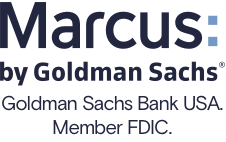
Black-owned banks tend to serve Black communities in the U.S. more than other banks do.
Black-owned banks — and credit unions, their not-for-profit equivalent — are intentional about helping the Black community. Many are community development financial institutions, which provide financial services in underserved and low- to moderate-income areas.
These banks connect those who have been denied accounts or loans in the past with banking services. About 11.3% of Black American households are unbanked, compared with 2.1% of white households, according to a 2021 survey by the Federal Deposit Insurance Corp.. Black-owned banks also lend to Black-owned small businesses and Black homeowners, who are both denied loans more often than non-Hispanic white borrowers. (Skip down for more historical context.)
What is a Black-owned bank?
What is a Black-owned credit union?
Can allies join a Black-owned bank?
Why do Black-owned banks and credit unions matter?
Is Greenwood still Black-owned?
What is a minority depository institution?
“We’re making Black America a better place, and by doing so, making all America a better place,” said Kevin Cohee, CEO and chairman of OneUnited Bank, one of the largest Black-owned banks in the U.S., during a 2021 interview with NerdWallet.
Black-owned banking institutions we’ve reviewed
Select a financial institution to read our review:
List of Black-owned banks, credit unions and fintechs by state
Our list focuses on more than 250 U.S. Black-owned (and Black-led) banks and credit unions, and a rare few are Black-owned nonbank tech firms that partner with banks to offer federally insured banking accounts. Each bank is listed by the state where its headquarters is located. The list is based on federal banking data for banks and credit unions, and in the case of several tech firms, the business platform Crunchbase.
Why Black-owned banks matter
Black-owned banks’ mission includes closing the nation’s wealth gap. The typical white family in the U.S. has about six times the wealth of the typical Black family, according to a 2022 Federal Reserve survey. Put another way, the typical Black family has around $16 for every $100 that the typical white family has. This gap exists in part because of past U.S. policies as well as banking industry practices, which historically excluded Black Americans from access to credit and banking services.
Black Americans historically have been blocked from government programs that boosted wealth for white Americans. For example, the Federal Housing Administration refused to provide government-backed mortgages to Black Americans for decades. This encouraged the mostly white-owned banks to perpetuate a racist policy of redlining, or denying or limiting financial services based on race or ethnicity.
Lending practices have shifted over time, but racial discrimination remains. As recently as the past decade, some of the biggest U.S. banks settled lawsuits for charging Black borrowers higher mortgage rates than white borrowers with similar credit profiles.

SoFi Checking and Savings

4.60%

EverBank Performance℠ Savings


Barclays Tiered Savings Account

4.80%
$250,000










